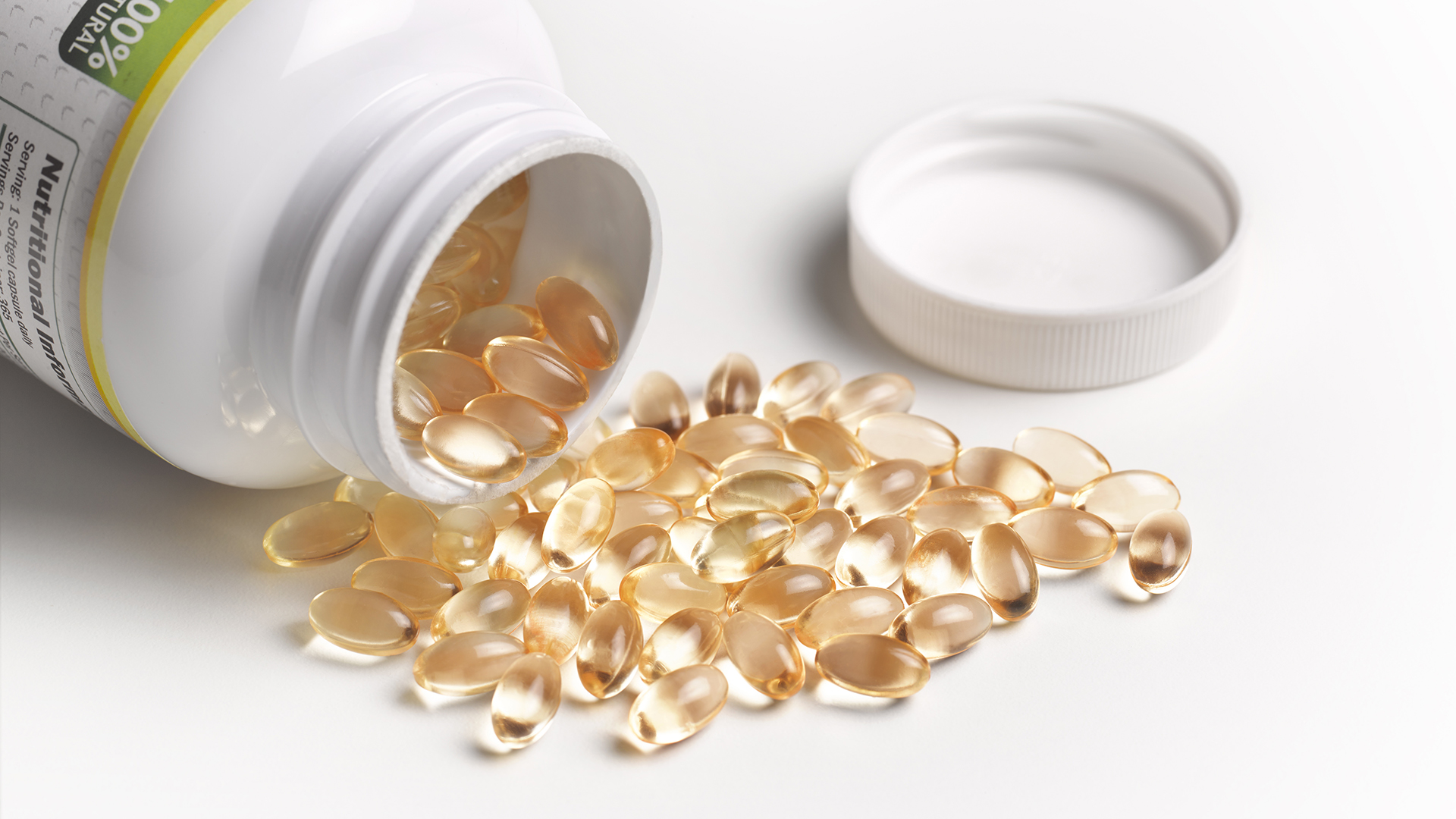Man’s 'overzealous' vitamin D use led to overdose, hospitalization
A private nutritionist recommended the man take the supplement.

After months of nausea and vomiting, a middle-age man in the United Kingdom finally learned the toxic cause of his health problems: too much vitamin D. His doctors found that an overzealous supplement regimen was to blame.
The patient lost 28 pounds (12.7 kilograms) in three months and complained to his general practitioner of persistent abdominal pain, dry mouth, diarrhea and vomiting, according to a case study published July 6 in the British Medical Journal. At the hospital, doctors learned that the man's symptoms had started about one month after he began an intense vitamin regimen suggested by a private nutritionist.
Under the regimen, the patient had been taking 150,000 international units (IU) of vitamin D daily — 250 times the 600 IU recommended by the Mayo Clinic. And he was ingesting more than 20 other supplements on top of that, including more than the recommended amount of omega-3, vitamin K2 and folate. High levels of serum creatine, a waste product that healthy kidneys remove from the body entirely, confirmed the patient's kidneys were affected. The man recovered after receiving intravenous fluid for rehydration, and being hospitalized for eight days as his kidneys recovered.
- Related: Why you can't skip magnesium if you're taking vitamin D
- Related: Should vegans take supplements?
"A common misconception with dietary supplements, including vitamin D, is that if some is good, then taking more is better," Shelby Yaceczko, an advanced practice clinical dietitian at the Center for Human Nutrition at the University of California, Los Angeles, who was not involved in the case report, told Live Science in an email. "Unfortunately, that is not the case and although it's important to maintain normal vitamin levels, it's also very important to avoid taking higher doses than what is considered safe."
Mega-dosing vitamins can be harmful, according to Yaceczko. Too much vitamin D in the body can lead to symptoms such as drowsiness, vomiting, weakness, constipation, bone pain and abnormal heart rhythm. Routine blood work is the only way to accurately identify and correct nutritional deficiencies, Yaceczko said. Without this kind of monitoring, patients become at risk for toxicities, like the one seen in the case study. (The case study didn't mention if the patient was having routine blood work done by his nutritionist, and the report's authors were not available for comment).
However, there may be something else at play, according to Dr. Heather Tick, a clinical professor of family medicine and an endowed professor of integrative pain medicine at the University of Washington in Seattle, who was not involved with the case report. "Everything he was on — it was a lot of stuff," she told Live Science. But "usually you need to be taking high doses of vitamin D for much longer, not just a month" to experience toxicity, Tick added.
According to Yaceczko, scientific literature suggests that "vitamin D toxicity can happen between 1 [to] 4 months depending on several factors as well as the mega-dose quantity the individual is taking."
Sign up for the Live Science daily newsletter now
Get the world’s most fascinating discoveries delivered straight to your inbox.
Tick also said it's possible that the patient in the case study may have had an underlying condition that predisposed him to accumulate vitamin D at toxic levels.
"A case study is like putting together pieces of a puzzle, where some of the pieces are missing," Tick explained. For example, the study authors did not specify if the patient was taking vitamin D2 or D3, which could affect how the excess vitamin D accumulated in the patient's body.
"More investigation was warranted — possibly by a rheumatologist or endocrinologist," Tick said. "It is difficult to know how all the factors intersect. The picture is not totally clear from the available information."
Yaceczko, who is a registered dietician, warned that the term "nutritionist" is often used loosely, is an unregulated title and doesn't require any kind of education or work experience. People should therefore exercise caution about where they get their nutrition advice and seek out medical professionals who've undergone the necessary training, Yaceczko said.
Originally published on Live Science.

Donavyn Coffey is a Kentucky-based health and environment journalist reporting on healthcare, food systems and anything you can CRISPR. Her work has appeared in Scientific American, Wired UK, Popular Science and Youth Today, among others. Donavyn was a Fulbright Fellow to Denmark where she studied molecular nutrition and food policy. She holds a bachelor's degree in biotechnology from the University of Kentucky and master's degrees in food technology from Aarhus University and journalism from New York University.









